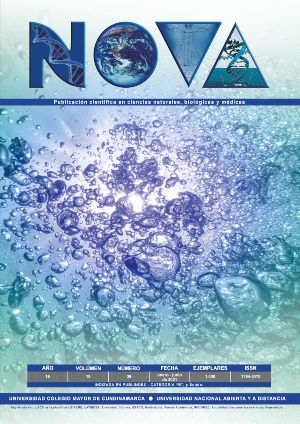NOVA por http://www.unicolmayor.edu.co/publicaciones/index.php/nova se distribuye bajo una licencia Reconocimiento No Comercial- Compartir igual
Así mismo, los autores mantienen sus derechos de propiedad intelectual sobre los artículos,
Declaración de privacidad.
Los nombres y las direcciones de correo electrónico introducidos en esta revista se usarán exclusivamente para los fines establecidos en ella y no se proporcionarán a terceros o para su uso con otros fines.
Caenorhabditis elegans as an infection model for the study of antimicrobials
Despite some ethical limitations, animals play an important role as surrogate hosts in investigating the pathophysiological mechanisms of disease in order to test drugs against different pathologies. One of the great problems in public health worldwide in the pharmacological context is the production of antibiotics and the occurrence of microbial resistance, the use of animal models is becoming increasingly complex due to current bioethical restrictions, however, it is necessary to use models simple in preliminary studies that allow evaluating host-pathogen-antimicrobial interactions. Validating that Caenorhabditis elegans is susceptible to various bacteria and also has the ability to respond to environmental stimuli with observable changes in behavior after being fed with various bacteria, it is very useful to use it in this type of research since it has a short average life and does not have ethical restrictions for its use. Therefore, this article reviews the susceptibility of C. elegance to become infected with different bacteria, in addition, since it has not yet
been fully validated as a model to test antimicrobials, it is proposed that this nematode is
useful as an in vivo model. to evaluate infections and antibacterial treatments.









